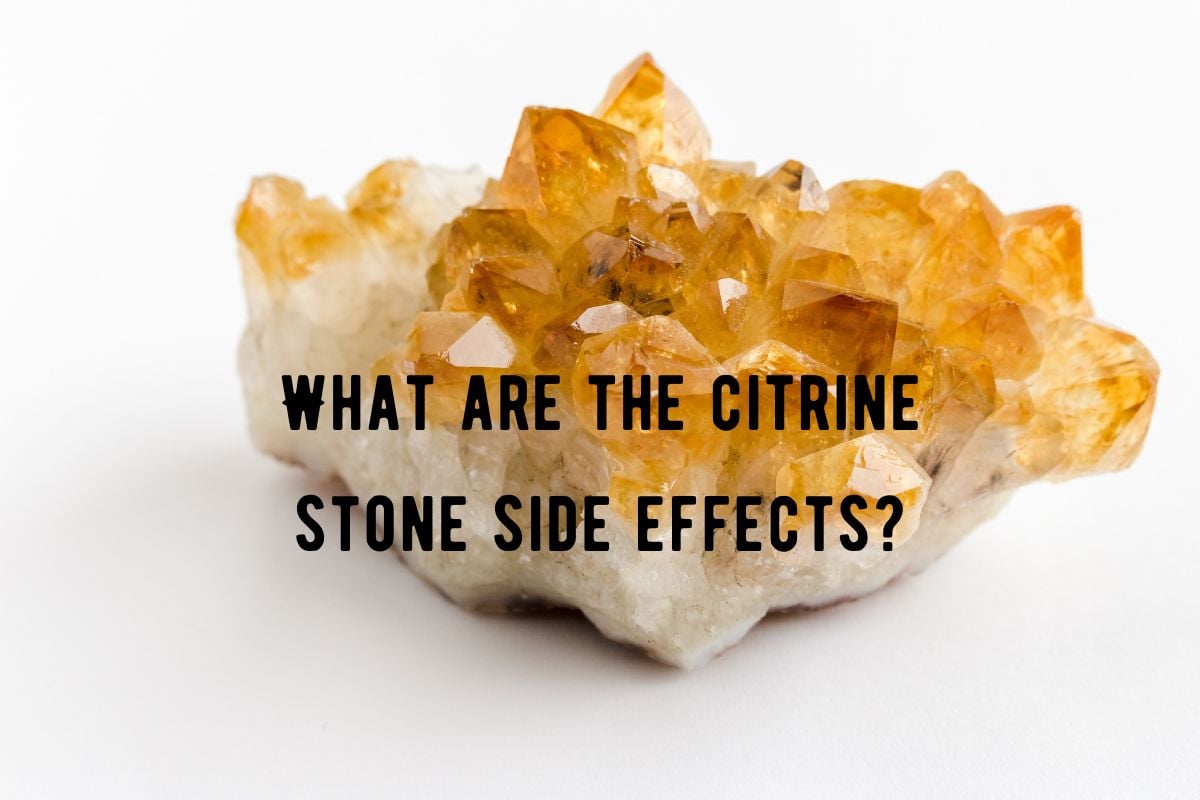Table of Contents
What Are the Side Effects Of Citrine?
Like the lemons, the citrine stone is a brilliant and cheery yellow, but it also can bring about bad and bitter feelings in the body and the mind. Some most common citrine stone side effects are headaches, pins and needles, nausea, mood swings, and aggressive behavior—so you should know who should not wear the citrine stone.
Citrine, often called the merchant stone, symbolizes wealth, success, and self-assurance. In addition to its stimulating effects, it is well-known for its health benefits, including detoxification, stimulation of the immune system, protection from infection, and alleviating menstruation cramps.
- Fluctuating emotions: Citrine is a high-vibration stone that may cause its wearer to experience extreme swings in their mood. This is because citrine aids in processing repressed feelings, which can, in turn, profoundly affect one’s way of thinking and acting.
- Aggressiveness: The leading emotional indicators of an imbalance in the solar plexus chakra are hostility and lack of self-control. Anger, irritation, and impatience are all signs of a hyperactive third chakra, which can be exacerbated by using citrine.
- Fatigue: A hyperactive solar plexus chakra can cause exhaustion, among other symptoms. Citrine can amplify the effect of working too hard if that’s the case, which can cause an energetic blockage.
- Dizziness: Using citrine may leave some people feeling lightheaded, achy, or detached from their bodies. This is due to citrine’s strong vibrations; it is a crystal known for promoting energy and vitality.
- Nausea: In addition to headaches, some people experience nausea when their solar plexus chakra opens. Anxiety is the physical manifestation of negative emotions and manifests as trembling and palpitations.
Is Citrine Safe To Wear?
Sagittarius, Scorpio, Gemini, Aries, Libra, and Leo can all benefit from wearing citrine. Keep your citrine safe from the sun and water by wearing it on your receiving hand daily.
Many people wear citrine jewelry for various reasons. First, its sunny yellow hue stimulates the area of the body associated with self-assurance, vitality, and happiness, known as the solar plexus.
When worn correctly, citrine poses no health risks and is appropriate for all occasions. However, whether or not you should choose to wear citrine depends on several factors, including your solar sign, birth month, occupation, and mental and physical health.
Although each stone has its unique flavor and set of advantages that last a lifetime, some stones cannot be worn together. Incompatible with the citrine stone include the diamond, emerald, and blue sapphire since their respective lord’s conflict with Jupiter.
Can You Wear Citrine Every Day?
Like any other gemstone, citrine is at its most effective when it has ample opportunity to interact with your personal energy field. Therefore, you should put it on every day. Wearing this stone while meditating with the goal of attracting wealth and success is also highly effective.
Some people who wear this gem report feeling like they are being pricked all over by pins and needles. This occurs because the energy tingles created by citrine crystals stimulate the body.
The user may worry about this, but it’s only a consequence and not harmful. Citrine is one of the crystals on a list of non-toxic stones since it contains no harmful chemicals.
For its size, the citrine gemstone packs a tremendous amount of positive energy. As soon as you put it on, any bad vibes or influences from your environment will be nullified.
It can express the sun’s force and has a beautiful cleansing property. By filtering both the mind and the astral body, it aids in cleaning the chakras and bringing all negative emotions to the earth.
In addition, it helps you feel secure and calm your mind, which in turn protects you from harm. As a result of getting into contact with this crystal, you will feel a surge of positive energy and an overall sense of well-being.
Is Citrine Water Safe?
Citrine is water-safe: The yellow crystal’s hardness of 7 on the Mohs scale is far higher than the minimum threshold for minerals suitable for submersion. Therefore, citrine, like any other stone, should not be submerged for an extended period of time.
Water can wear down the stone’s look and even weaken its framework if left on it for too long. Water enters the crevices of the stone and widens the cracks. These cracks might not be seen at first, but they weaken the stone over time, making it more likely to break when struck.
On the Mohs scale, citrine registers a 7.0, making it a moderately hard stone that may be submerged in liquid. Some may like topaz over citrine because of its higher Mohs hardness rating of 8.0 on the scale.
Crystals lose their luster and sparkle when exposed to water, which also tends to dull their overall appearance. In addition, the optical qualities of a stone can be damaged because of fissures, which are prompted by water and alter the way light reflects within the stone.
Who Should Not Wear Citrine?
You should exercise caution when selecting crystals, as citrine is among the most potent stones. Therefore, citrine isn’t appropriate jewelry for everyone.
Since citrine is related to the element of earth, those born under the water signs of the rat and pig should avoid wearing it for good feng shui.
Keep in mind that citrine is a high-energy stone, so if you suffer from regular headaches, dizziness, rage, mood swings, etc., a citrine pendant or ring could help.
Wearing a citrine will make you feel worse about yourself, so don’t do it. Citrine is best avoided by those with fast tempers. As a result of its high price, few people wear yellow sapphires, but those who do often substitute citrine, a far more affordable gemstone with similar properties.
Two of the most popular alternatives to citrine gemstone are yellow topaz and yellow sapphire. The smaller and less expensive version of the yellow sapphire is called citrine. Like citrine, yellow imperial topaz can help you keep your body and mind in good shape.

More articles about Citrine you may like:
The Ultimate Guide To Using Healing Crystals for Beginners
How To Use Citrine To Attract Money?
Yellow Topaz Vs. Citrine: What’s The Difference?
Citrine: Meaning, Healing Properties, and Uses
16 Powerful Crystal Combinations and Pairings That Work Well Together
Yellow Crystals and Stones List: Names, Meaning, Healing, and Uses



